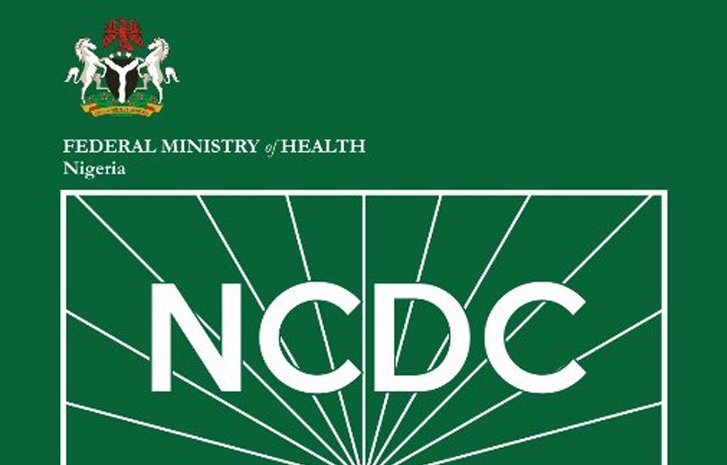By Akanimo Sampson
As COVID-19 continues to bite harder worldwide, Nigeria has confirmed 16 new coronavirus cases and six deaths in the country.
The Nigeria Centre for Disease Control (NCDC) on Tuesday confirmed new cases on Tuesday, bringing the total number to 254 in the country.
A breakdown shows that 10 new cases were reported in Lagos, 2 in FCT, 2 in Oyo, 1 in Delta, and 1 in Katsina while 44 persons have been discharged.
This is as Federal legislators are currently engaging health authorities for details the coming of Chinese doctors to assist Nigeria to respond to the COVID-19 pandemic.
They are, however, spurred by growing concerns of citizens about the Chinese and the coronavirus pandemic.
Speaker of the House of Representatives, Femi Gbajabiamila, said on Monday that having listened to the two health ministers in the country, “what we are taking away from this meeting is that Nigeria needs this intervention from the Chinese.’’
“But, you (the ministers) have to make it mandatory that they observe all the protocols laid down for the disease,’’ the Speaker adds.
Health Minister, Dr. Osagie Ehanire and the Health Minister of State, Olorunnimbe Mamora, assured the Speaker that the 18 Chinese doctors will not have personal contacts with patients during their stay in the country.
In the meantime, after a meeting between the leadership of the House and the two health ministers, Gbajabiamila said the measure became necessary to take precautions and allay fears expressed by many Nigerians.
Present at the meeting were the Chief Whip, Mohammed Tahir Monguno; the Deputy Leader, Peter Akpatason, and the Deputy Chief Whip, Nkeiruka Onyejeocha.
Gbajabiamila says the meeting was conveyed following widespread complaints that trailed the announcement of the coming of some Chinese medical personnel to assist Nigeria.
Explaining the essence of the meeting, he said: “There are a lot of complaints about why we are bringing in Chinese doctors.
“It is incumbent on us, as lawmakers, to intervene, following the concerns of our constituents to understand the issues and get the right information to them.
“Our duty is to protect the Nigerian people, and every opportunity to increase our knowledge will not be thrown away.
“As you explained that they won’t have direct contact with Nigerian patients, you have to make sure that they go through our official immigration laws, they have to get work permit waivers because they are coming here to work.
“Also, they have to be quarantined for 14 days as stipulated by the protocol, and you have to educate Nigerians about this to avoid misconceptions. We have laws and they must be complied with,” the Speaker said.
Speaking, Ehanire, the health minister told the House leadership that Nigeria did not officially invite the Chinese team, but that it was an offer arranged by a group of Chinese companies based in Nigeria as part of their corporate social responsibility (CSR) to Nigeria.
He said that being a novel disease that every country is trying to understand, Nigeria will benefit more from the gesture because the existing health facilities and personnel in Nigeria to tackle the disease are inadequate.
On his part, Mamora emphasized that the Chinese personnel are mainly experts in molecular laboratory testing, where we have only two indigenous experts currently serving seven laboratory centres.
He says the Chinese doctors are expected to help in setting up molecular laboratories around the country as well as upgrade and reconfigure existing ones in the country.
Adding, he says the Chinese medical personnel will not have direct contact with Nigerian patients but will only help to reconfigure the laboratories and train Nigerian personnel and experts on the management of the disease and operation of the equipment and upgraded laboratories.
According to him, the Chinese gesture has no financial implications to Nigeria, Mamora regretted that there was little option than to accept the offer.
“Case testing is the bulk of work because some people are asymptomatic, so we need faster and rapid test kits and processing. We are doing molecular testing that helps us know the viral load as well.
“We need to expand our testing labs across the country. Presently, we have two lab scientists in molecular testing, serving seven labs across the country. As we are expanding across the country, we need more people to be trained in molecular testing for faster results”, he said.
Meanwhile, in the face of the coronavirus health emergency, the Inter-Parliamentary Union (IPU) says it is standing in solidarity with its member parliaments, partners and friends
The COVID-19 pandemic is an unprecedented global challenge that knows no borders and impacts everyone, especially the poor, the vulnerable and the marginalised.
International solidarity, cooperation and coordination have never been so important and the parliamentary community has a vital role to play.
“We wish all those affected personally a speedy recovery and much strength in the coming weeks,’’ says IPU.
IPU also expresses its deepest gratitude to all the health professionals, nurses, doctors, food service workers, and all those on the front line in the fight against the coronavirus who are risking their lives in order to protect ours.
IPU further says the World Health Organisation (WHO) is leading the global effort, supporting countries to prevent, detect, and respond to the pandemic.
“We call on the IPU’s 179 Member Parliaments, as well as the wider parliamentary family, to support WHO through the newly created COVID-19 Solidarity Response Fund’’, it adds.
The Solidarity Response Fund is designed to raise money from a wide range of donors to support the work of WHO and partners to help countries respond to the COVID-19 pandemic.
The Fund will help finance essential supplies such as personal protective equipment for frontline health workers; boost laboratory capacity through training and equipment; and accelerate efforts to fast-track the discovery and development of lifesaving vaccines, diagnostics and treatments.
The COVID-19 Solidarity Response Fund is a partnership between WHO, the United Nations Foundation and the Swiss Philanthropy Fund.
More information on how you can make a donation here.

